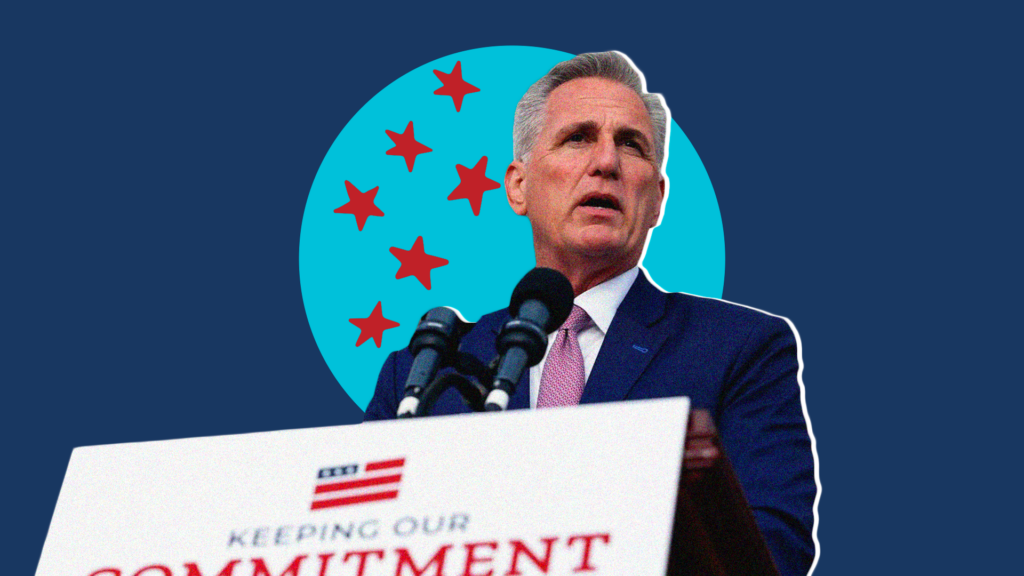ABC’s ‘Shark Tank’ Shows the Crucial Importance of Low Tax Rates
America is not even two years removed from the passage of one of the biggest tax reform measures in decades. Yet, we have already seen job creation, economic growth, and heard hundreds (if not thousands) of stories about businesses being able to afford to pay their workers more because of these tax cuts. Money is, in fact, better left in the hands of the American people than the American government.
Unfortunately, not everyone is as enthusiastic about these economic benefits. The influential freshman congresswoman Alexandria Ocasio-Cortez (D-N.Y.) has instead decided to try to turn the nation’s tax policy in the other direction and press the metaphorical gas pedal to the floor. She has recently proposed funding some of her more ambitious legislative initiatives by raising taxes on America’s top earners to 70 percent or more.
Rep. Ocasio-Cortez often draws undeserved scorn and personal attacks because of the influence she’s been able to wield in the early days of her congressional career. Much of it borders on obsession and should be out of bounds in our political discourse. However, when it comes to her tax policy, a good amount of ire is earned.
Shockingly, not to mention disappointingly, Ocasio-Cortez and her fellow progressives in Congress have gained some unlikely allies in this fight to raise taxes on the wealthiest Americans.Some of those aforementioned wealthy Americans have spoken up recently to affirm that they believe they should paying more taxes to the federal government.
Warren Buffett, the chairman and CEO of Berkshire Hathaway, said in late February, “The wealthy are definitely undertaxed relative to the general population.” Fellow billionaire and founder of Microsoft, Bill Gates echoed this call for tax hikes by saying, “As we raise taxes, we can have most of that additional money come from those who are better off.” Buffett and Gates weren’t alone. Howard Schultz, the former CEO of Starbucks and potential third-party candidate for president, issued a similar statement.
Perhaps most disappointing, though, was the assertion by billionaire Dallas Mavericks owner Mark Cuban that he opposed the tax cuts and wants the government to generate more revenue “via other taxes on people like me.” Cuban is also one of the “sharks” on TV’s Shark Tank, where wealthy investors let small entrepreneurs pitch their businesses in hopes of getting an investment.
Cuban needs only to look at his own experiences on that show to see how misguided his proposal is. He could also listen to the words of one of his fellow “sharks,” Canadian businessman Kevin O’Leary. Right before the passage of the tax cuts package, O’Leary railed against excessive taxation in America, saying it is a way to punish success and to make sure “the winners in our society are clawed back to zero.”
O’Leary rightly points out that tax hikes are a hindrance to success. Indeed, that money will be far more useful to America’s small businesses and entrepreneurs in his hands than it would in the hands of a Congressman, whether Republican or Democrat. Both Cuban and O’Leary have first hand experiences witnessing that principle play out in reality.
Julie and Brian Whiteman, a married couple, came to Shark Tank to pitch their app, Groovebook. Groovebook would allow people to print out the photos from their smartphone and turn it into a small photo booklet. Cuban and O’Leary invested only $75,000 each of their own money to boost the company. Less than a year later, Groovebook sold to Shutterfly for over $14 million.
This isn’t even Shark Tank’s biggest success story. Aaron Krause, an entrepreneur from Philadelphia came into the tank with his invention, the Scrub Daddy, a versatile sponge with a smiley face in the middle. He made a deal with the “Queen of QVC” Lori Greiner, and got a $200,000 investment in exchange for 20 percent of his company. To date, Scrub Daddy has netted over $100 million in sales since that deal.
These entrepreneurs did not make themselves millionaires through government subsidies. They combined their hard work and ingenuity with the resources of a wealthy investor. This is just a sliver of what is possible when the wealthiest among us have excess capital to invest in America’s entrepreneurs. Many like to score political points by demonizing the rich in America. However, shows like Shark Tank demonstrate for the world to see what can happen when everyday Americans with an idea and a dream get paired up with someone who has business knowledge and a lot of money.
Neither Aaron Krause nor the Whiteman family nor any one of the hundreds of entrepreneurs who have gotten deals on Shark Tank would be better off if Kevin O’Leary or Mark Cuban had given their money instead to the federal government. Their wealth not only helped improve the lives of these entrepreneurs, but of the customers whose lives were made easier by these products.
If billionaires like Warren Buffett, Bill Gates, or even Mark Cuban feel they have too much money, then they should keep investing in small businesses and entrepreneurs. That is a far more efficient use of their money and will have far more material benefits for working and middle class Americans. So, when the question is posed as to how to lift up our economy and our middle class, there could not be an answer more wrong than skyrocketing tax rates on the wealthiest Americans.



